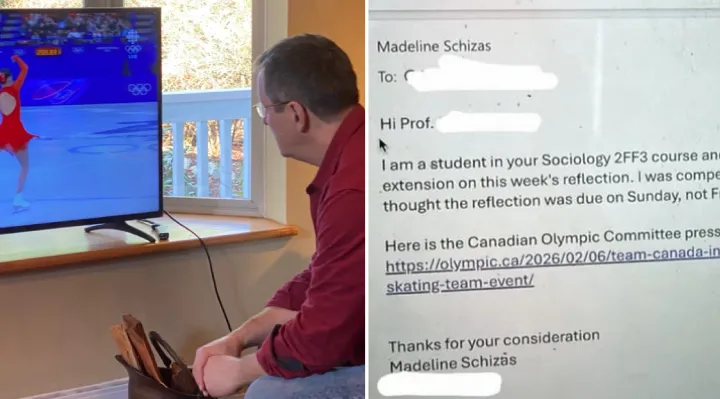These Tips Will Help You Get Through Your First Year In College
August 28, 2023
Congratulations on being accepted into your dream college. As you probably know, getting a college degree improves your opportunities for success and imparts crucial skills you need for work and personal life. College is also the place where students grow their social connections and create networks that could benefit their career growth in the future. However, you will likely discover that a college education differs from what you were used to in high school. The schedule will be more demanding, and the responsibilities will be more daunting.
Also, college life is less structured, so students need more self-monitoring skills. Expect parents and teachers to make fewer decisions for you at this stage in your studies. Be ready to encounter a higher level of academic competition and to have minimal contact with professors. You will be more responsible for your learning and seeking additional support services.
Going by the high college dropout rates for freshmen, it is clear that the first year on campus can often be the most challenging. According to recent studies, 40% of students drop out of college annually, and 30% are in their first year on campus. Many learners believe that they will register success if they are interested in college and motivated to learn.
However, you may find that motivation and interest alone are not enough to get you through college. You will need to develop systematic study skills and effective time management. You will also need to work on your time management skills, develop social support systems and prioritize self-care. Here are a few tips to help you navigate the challenges of college life.

Deal With Homesickness
The truth is that most college freshmen struggle with homesickness, with evidence showing that 66% of first-year students report feeling homesick during the first two years on campus. Here, homesickness means those feelings of loss and grief students feel when away from their home or normal environments. Most students transitioning to college feel sad because of the separation from the places and things they love. The symptoms of homesickness vary in severity and may be so severe that it mimics depression. Although homesickness is normal, prolonged sadness can interfere with your ability to adapt to college and affect your academic performance.
The first step in dealing with homesickness is recognizing that the feelings are normal and will go away with time. It is a justifiable reaction to separating from the people and things you love. You should also get out of your room and interact with other students if you want to overcome homesickness. While there are times when staying isolated in your personal space is all you need, interacting with others will help you miss home less.
Don’t ignore opportunities for those evening walks or swim. Make new friends, and don’t forget about your connections back home. You shouldn’t stress about assignments as there is help available online. You could easily buy essay online and get to work with top professionals.
Explore Your Surroundings
One of the most effective ways to familiarize yourself with the college environment and ease the transition to campus life is by going out and exploring your surroundings. This means attending classes, seminars, participating in group discussions, and being open to interactions. Exploring your environment allows you to discover what your college has to do beyond academics. Orientations will also familiarize you with the ins and outs of campus life. You won’t have the bad experience of getting lost on your way to the library or exam room. Plus, evidence shows that the outdoors is good for mental and physical health.
Get More Organized
College life is less structured, so many students struggle to keep up with the demands of being on campus. Although lectures will offer the framework for your schedule, you will still need to work on your organizational skills and balance your personal and academic commitments. Being organized will not give you more hours in a day, but it can reduce some of the time pressure by making it easier to get things done. You accomplish tasks more effectively when you are more organized, freeing up space for studying and fun.
The first step in getting more organized in college is decluttering your study space. According to research, clutter is distracting and exhausts your brain. So, start getting more organized by clearing your work surface of files, books, and loose papers that may distract you and diminish your focus. Understand that remaining tidy will only take a small portion of your time, but the benefits will be worth the effort. As you organize your study space, allow enough room on your desk to work comfortably on one assignment or project at a time, free from distractions.
The organization also means tracking all important dates, reminders, tasks, exams, and assignments. One notable thing about college is that there will be many moving parts to track, including tests and assignment due dates. An effective tracking system will help you reduce the pressure of trying not to forget. You will also not have to deal with the negative consequences of not completing things on time. Read these essay writing services reviews for an idea of how to get help if you find yourself late with an assignment.
Prioritize Sleep
Sleep statistics in the United States are worrying, as evidence shows that the average person sleeps less than seven hours every night. According to recent studies, more than 50 million people in the US struggle with a sleep-related disorder. At the same time, established evidence shows the importance of quality sleep for college students, with studies showing that we need the right amount of sleep at night to remain focused and maximize concentration. There is also a clear link between the quality of your sleep and your academic performance.
The understanding here is that students who do not get enough sleep are at a greater risk of many health complications, including type 2 diabetes, obesity, injuries, and compromised mental health. Quality sleep means obtaining at least seven hours of uninterrupted slumber each night. If you struggle with sleep problems, you need to work on your sleep hygiene. This means being consistent and making sure your room is dark and relaxing. You should also consider removing screens and other electronic devices from your sleeping area. Experts recommend avoiding large meals and tobacco before going to bed. Exercise and having a routine will definitely help you sleep better.
Work on Time Management
Your success in college will mostly depend on how well you manage the time you have. With so much work to do in college, you may feel that you are constantly rushing against time to get things done. Also, most students find that college life is less-structured, meaning they can decide what to do with their time. Without discipline, this lack of structure may leave you overwhelmed and struggling to complete urgent tasks at the last minute.
Effective time management will require you to review your time use. Examine your daily habits to see where you waste valuable minutes. These could be distractions and timewasters that don’t add any value to your personal or academic life. Review your weekly schedule to ensure you have enough time to do what needs to be done.
List what needs to be accomplished daily, juggling academics, work, and fun. Create time for studying, allocating enough time per subject. Understand that there will be those seemingly complicated tasks that will intimidate you. Breaking large tasks into smaller steps will make those challenging tasks less overwhelming. Schedule breaks within your routine so you don’t have to worry about burnout. Most importantly, understand your limits and don’t hesitate to seek assistance.

Avoid Distractions and Don’t Multitask
Distraction is time-consuming and can overwhelm you as you try to recover lost time. Many students struggle with distractions, especially since we live in an era of technology and social media. This could mean checking your phone multiple times when working on an assignment or glancing at the news several times when studying. The time you lose when distracted can diminish your productivity.
Multitasking is another way students struggle to remain efficient and productive. Many people believe that multitasking is a desirable skill that should be mastered. However, evidence suggests that the human brain is incapable of multitasking. When you think you are multitasking, your brain is actually switching rapidly between tasks. This causes you to lose concentration and waste time. Evidence also shows that habitual multitasking harms your brain and harms your health. So, avoid distractions and multitasking to stay productive and efficient in college.
The Bottom Line
This article offers a few useful insights for college students to navigate their freshman year successfully. This means working on effective time management and learning to complete assignments on time. You must prioritize self-care, sleep well, eat healthy meals, and exercise. You should also work on your social support systems, creating networks that could prove crucial later in your career.
 Dogs Are Forced To Wear The Things They Steal — And It’s Hilarious
Dogs Are Forced To Wear The Things They Steal — And It’s Hilarious
 Meet Nazgul: The Dog Who Crashed An Olympic Ski Race And Nearly Won
Meet Nazgul: The Dog Who Crashed An Olympic Ski Race And Nearly Won
 Bill Murray Says This Painting 'Saved His Life' — And It Still Inspires Visitors Today
Bill Murray Says This Painting 'Saved His Life' — And It Still Inspires Visitors Today
 Professor Watches His Student Compete At The Olympics After She Requested An Extension On An Assignment
Professor Watches His Student Compete At The Olympics After She Requested An Extension On An Assignment
 He Lost Everything And Had To Give Up His Dog — Then Strangers Brought Her Back Home
He Lost Everything And Had To Give Up His Dog — Then Strangers Brought Her Back Home
 10 Powerful Inventions Where Helping Others Came Before Profit
10 Powerful Inventions Where Helping Others Came Before Profit
 James Van Der Beek Has Passed. But What He Said Before He Died, We All Need To Hear
James Van Der Beek Has Passed. But What He Said Before He Died, We All Need To Hear
 He Ordered A Doctor Bag — But The Size Has Him Laughing Uncontrollably
He Ordered A Doctor Bag — But The Size Has Him Laughing Uncontrollably
 Mom Was About To Miss Her Flight, So A Stranger Picked Up Her Kid And Ran With Her
Mom Was About To Miss Her Flight, So A Stranger Picked Up Her Kid And Ran With Her
 Woman Stunned By Valuation Of Rare Māori Jade Hei-Tiki Found In Her Garden
Woman Stunned By Valuation Of Rare Māori Jade Hei-Tiki Found In Her Garden
 Mom Red Fox Calls Her Adorable Pups Out For The First Time
Mom Red Fox Calls Her Adorable Pups Out For The First Time
